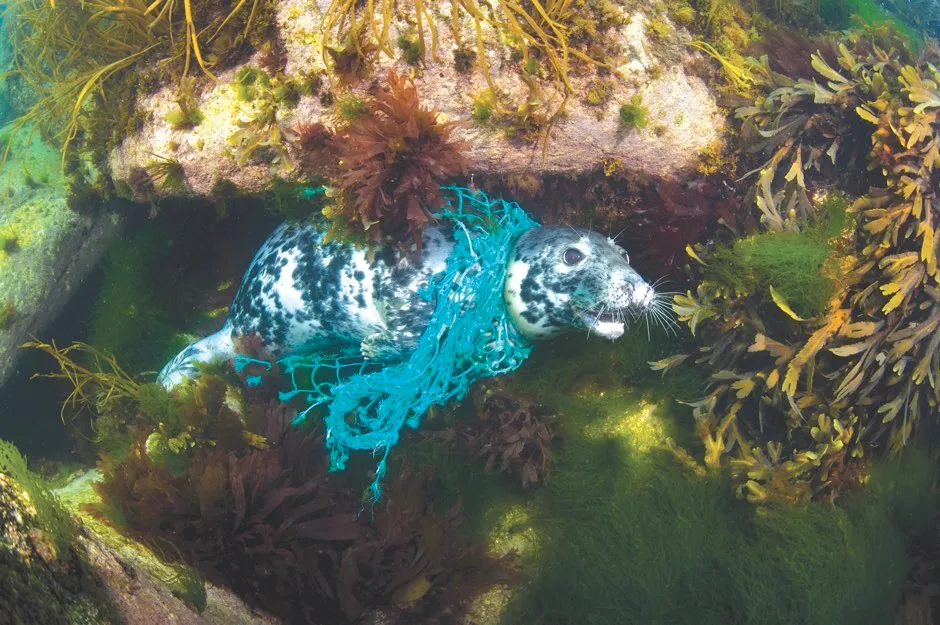Humans like to believe that we are somehow different from other animals. Nicholas Money, author ofThe Selfish Ape, argues that what makes us unique is our self-absorbed destructiveness.
What are you trying to achieve with this book?
It’s a book that summarises in a succinct fashion the human condition from a biological perspective, and I think it places us within a proper context.
Hopefully it will lead readers away from the idea that we are an exceptional species. There have been so many books, and media attention, focused on the measures of human biology that speak to our triumphant place in nature. Add to that the way that we flambé the planet and the way we talk about artificial intelligence, it feels as though we’re beginning to acquire the tools to obtain an almost godlike status.
But in my view, and the point I make in my book is, humans are quite unexceptional, by more measures than we care to admit.
We are, however, exceptional in our destructiveness, and I think that this needs to be said to counter the voices that seek to elevate us above the rest of nature.
We humans like to think of ourselves as special. What is it that distinguishes us from other animals, biologically speaking?
The size of the human brain, that is the metric that separates us from other organisms, although of course, there are larger brains on this planet.
There’s also our possession of language and the dextral finesse we have – so, the fact that we’ve got hands. As smart as killer whales might be, and pilot whales certainly, they can’t alter their environment in any conscious fashion. They can go out there and feed and mate and so forth, but we can actually build things with our hands. We’ve certainly perfected tool use.
Read more about consciousness:
So, certainly there are many ways in which humans differ from other species, but of course you could apply the same thing to any other species on the planet; in what way is a bumblebee different from humans? Certainly, there are specifics about the human condition, but in many other ways, we’re not that exceptional.
For example, it has been fashionable for a long time to speak about human consciousness as a unique characteristic of Homo sapiens, but we now know that this is without foundation. We see evidence of consciousness in many other animals, and certainly in insects; dragonflies and so forth. They are tremendously sensitive organisms with sophisticated nervous systems and sensory systems.
In one sense, science has put a lot of effort in over many centuries to prove we’re not special, that we’re not at the centre of the Universe. We’re not even at the centre of our Solar System. So where did the idea come from in the first place?
To answer that you have to ask is ‘what’s the source of our narcissism?’ I think the answer probably lies in our success in warfare. The fact that we wiped out other hominids. I mean, some of them were extinguished by climate change in their time, but I think the fact that we were so successful at wiping out our competitors, hunting our prey and changing our environment is at the heart of this.
Read more about self-awareness:
We could look at this and say: ‘Look at us. Look at the measure of man. Aren’t we fantastic?’ No other organism does this. But the consequence of this is that we’ve become so successful at modifying our environment that we’ve begun to warm the planet in a highly destructive fashion.
Other parts of the world hold different, more community-spirited values, and we as a species have invented things like charity and society where we depend on each other. Do you think this is a sign that we can do better?
Those are certainly admirable features of human behaviour. However, even in that case, I find the concentration on humanity, rather than other species, dispiriting. Our treatment of non-human animals, through industrial agriculture, through entertainment, through vivisection within the biological sciences – the justification for so much of this comes down to the importance of humanity. So, I think even in a community setting, we’re still concentrating on ourselves, so we haven’t escaped from this basic self-adoration.
In terms of whether more communal living and so forth represents a plan for saving the planet, there are certainly some possibilities there. But, at this point, we’re approaching seven and a half billion human beings. I think these are like funeral decorations, really.

So, do you think that just as our narcissism was a product of our success, that it also played a part in our continued success?
Absolutely. The idea that we’re the king of the jungle was a huge part of our success.
But it depends what you mean by ‘success’. What is biological success? Is an earthworm less successful than a human being? They’ll probably be here a long time after we’re gone, so maybe they get two thumbs up.
The International Union for Conservation places humans as in the least vulnerable category right now, because it says that we’ve populated the whole planet and there are no obvious threats to our continued existence. It seems remarkably naïve.
Is our extinction as a species inevitable?
Yes. Extinction of every species is inevitable. For us, I think it’s something that’s coming a lot sooner than many of us would like. Oh yes, the four horsemen of the apocalypse, if I listen, I can hear their hooves clattering outside.
- This feature was first published in the Summer2019issue ofBBC Science Focus–subscribe here.
The Selfish Ape: Human Nature and Our Path to Extinction by Nicholas Money (£14.99, Reaktion Books) is out now.
Follow Science Focus onTwitter,Facebook, Instagramand Flipboard